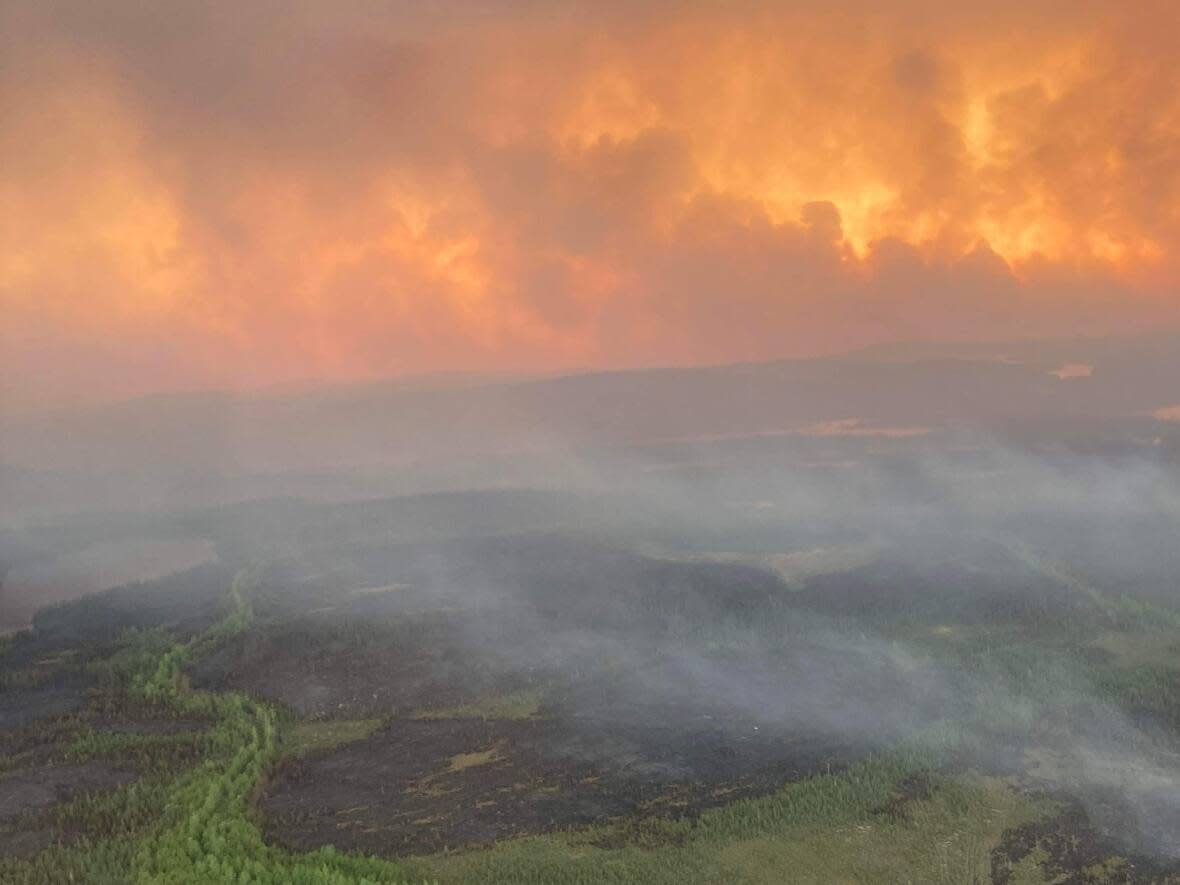Reinforcements arriving to fight Quebec fires as premier warns of more evacuation orders

People who had to leave their homes due to fires burning across northern and western regions of Quebec will not be able to return to their communities until next week, says Premier François Legault.
Legault, speaking at a news conference Wednesday morning in Quebec City, said dry weather and strong winds are creating dangerous conditions and heavy smoke in areas that have been evacuated so far.
"I want us to be realistic and not have rose-coloured glasses. We won't have rain in the next few days," he said.
In the Abitibi region, people have been forced out of their homes in communities including Lebel-sur-Quévillon, Senneterre, Lac Simon Anishnabe Nation, Barriere Lake, Normétal and Kitcisakik.
Further west and north, evacations have taken place in communities including Manawan, Chibougamau and Oujé-Bougoumou. In Waswanipi and Mistissini, people are preparing to evacuate the area.
A full list of evacuated areas is available on Quebec's website.
To date, 11,400 people have had to leave their homes.
Thousands of them have made their way to the Saguenay-Lac-Saint-Jean area for safety over the last two days.
WATCH | Experts say some parts of province benefited from rainfall:
"I want to thank people from Saguenay-Lac-Saint-Jean," said Legault. "I was really impressed last night, on social media we saw people offer their homes to those evacuated. There is exceptional solidarity among Quebecers."
Legault also said his government is looking at helping people out with expenses related to evacuations.
The North Shore was an area of significant concern earlier this week, but the situation is now under control and Sept-Îles residents have been able to go home, said Legault.
An important piece of Hydro-Québec infrastructure near Baie-Comeau is no longer under threat from the fires.
Still, the premier warned, the situation could change quickly and it's possible that new evacuation orders will be issued.
Legault said he "understands it's anxiety-inducing to leave your home, but your safety is more important."
Out-of-province reinforcements
Armed forces and out-of-province firefighters have been on the ground in Quebec to help tame the wildfires, but local fire authorities have said they only have the capacity to fight about 40 fires at a time for now.
So far, 460,000 hectares of land burned — already surpassing the 1991 total of about 350,000 hectares, said Forestry Minister Maïté Blanchette Vézina.
"We have never seen these many hectares [burn]," she said.
There are currently 670 people fighting the fires on the ground, excluding the pilots of waterbombing aircrafts, said Legault.
WATCH | Evacuees are exhausted but hopeful in Chicoutimi:
Quebec has 11 working aircrafts out of 13, and Yellowknife is lending the province two of its aircraft while Nova Scotia sent out four. Reinforcements from New Brunswick and France are on the way, said Legault, with plans to add more from Mexico, Spain, Portugal and the United States. If all goes to plan, 1,200 employees would be on the ground fighting the fires, said Legault.
But, because fires are burning across the country, getting help from other provinces may prove tricky, he said. Newfoundland and Labrador has already taken back two of the aircraft it had lent to Quebec.
As of noon Wednesday, 149 fires were blazing in the province, most of them out of control.
Prime Minister Justin Trudeau tweeted Wednesday evening that reinforcements had started to arrive from the U.S., with more on the way.
Fire locations
Air quality improving in Montreal
A smog warning in Montreal was extended until 7:15 p.m. Wednesday. Legault recommends those with asthma and respiratory problems stay inside with the windows closed.
When it comes to getting back to normal air quality, rain helps wash away the pollutants and particles, explained Jean-Philippe Bégin, a meteorologist for Environment and Climate Change Canada (ECCC).
While there has been rain in some parts of the province, more is needed. Regardless, air quality is improving in some hard-hit regions, he said.
"Things have already improved in the Montreal area as of last night, the air quality is better, but in the Ottawa region, the air quality is still bad," Bégin said on Wednesday.
With winds shifting to the north and northeast on Thursday, there should be further improvement, he said, even if the winds aren't strong. However, the situation is changing hour by hour and requires constant monitoring, he added.
New fires or extinguished fires can change the forecast, he said.


